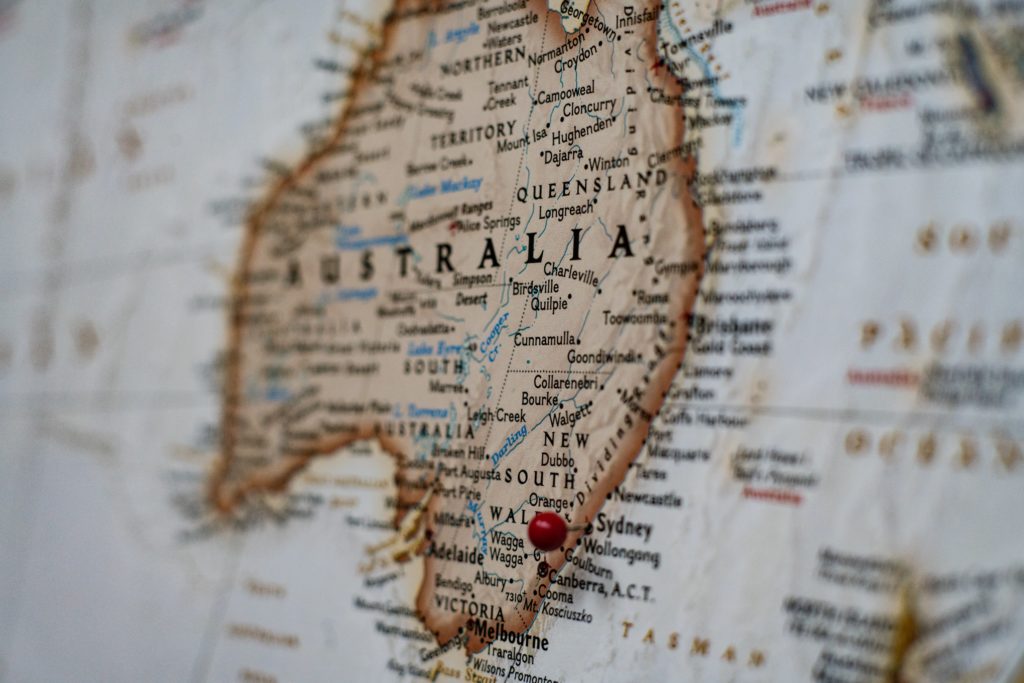Australian Association for Cognitive Behaviour Therapy

Photo by <a href="https://unsplash.com/@joey_csunyo?utm_source=unsplash&utm_medium=referral&utm_content=creditCopyText">Joey Csunyo</a> on <a href="https://unsplash.com/s/photos/australia?utm_source=unsplash&utm_medium=referral&utm_content=creditCopyText">Unsplash</a>
By Peter Pohlman
The President of Australian Association for Cognitive Behaviour Therapy (AACBT) is Associate Professor Melissa Norberg, deputy director of the Centre for Emotional Health, and director of the Behavioural Science Laboratory at Macquarie University.
2020 was a difficult year for our members and our organisation, and we continued to pursue our vision of improving the quality of practice of behavioural and cognitive therapies in Australasia, by providing high quality professional development in behavioural and cognitive therapies based on scientific evaluation.
We hosted a mixture of local and international presenters, with a dozen recordings being made available for free to members, representing nearly 20 hours of high-quality content, plus associated readings, and materials. Examples of some of the topics covered include mental imagery, OCD, trauma & race, digital CBT, CBT apps, suicidality, social anxiety, grief, and loneliness.
The on-line format for presenting CPD allowed us to embrace a wider diversity of speakers, with several domestic speakers gaining national exposure, rather than only in their home state. We were also pleased to be able to present long-form workshops from international speakers such as Roz Shafran, Martin Antony, David M. Clark, and Emily Holmes.
We are committed to maintaining an on-line presence in 2021 and look forward to expanding our catalogue of recordings for members, plus investigating what our 41st National Conference might look like. The National Board thanks our Branch Chairs, and the National Workshops & National Conference Coordinators for their on-going efforts.
In 2020, AACBT expanded our National Award program with a mid-career award being added to the portfolio of awards, joining our early career and distinguished career awards. The 2020 award winners were: Dr. Erin Kelly (early career), Dr. Michelle Moulds (mid-career), and Professor Peter Norton (distinguished career). Each winner recorded their presentation, highlighting their scientific output and contemporary research, and the recordings are available as additional presentations in our catalogue.
Our 41st conference took place in 2021, and AACBT continued to offer Early–Mid Career Travel Grants to members to support travel (where possible) to the AACBT National Conference following acceptance of either an oral or poster presentation. These grants provided complimentary scientific program registration, plus up to $1,000 to help cover eligible travel expenses for the applicant to attend the conference. This on-going initiative invests in the CBT community of Australia and encourages on-going research into CBT. The Board thanks our National Conference Coordinator for their service in supervising our largest annual event.
Improvements to our web portal are continuing, with the recent addition of a members only e-library, and a new subscription option for members. Members have access to exclusive areas of the website, which includes access to our annual reports, our journal (“Behaviour Change”), webinar recordings, and the growing e-library (with over 40 titles).
The Board recognises and acknowledges the work of our most recent past editor (Professor Ross Menzies) of our journal Behaviour Change. Professor Menzies has retired after many years of service, and we welcome our new editor (Associate Professor Genevieve Dingle) and her editorial board, who will be overseeing growth and improvements for our journal.
AACBT would like to acknowledge our Fellows: Professor Peter Lovibond, Professor Michael Kyrios, Professor Matthew Sanders, Professor Colin MacLeod, Professor Tracey Wade, Professor Ross Young, Professor Mark Dadds, Professor Mark Creamer, Professor Kim Halford, Professor Nicole Lee, Dr Sarah Egan, Professor Louise Sharpe and our most-recent inductee Associate Professor Neville King. We thank them for their continuing contributions to the CBT community in Australia and assisting AACBT throughout the year.


